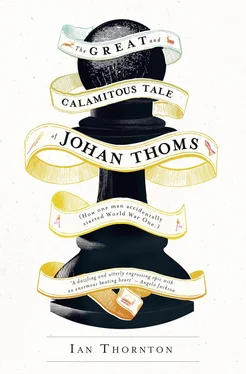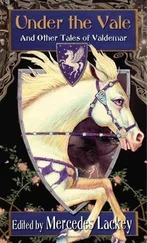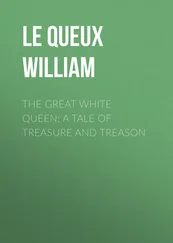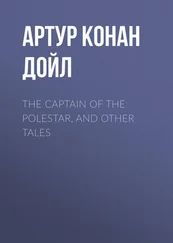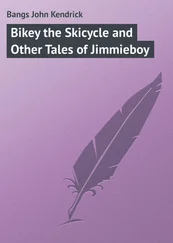This did not seem to me to be the same person who, from the boundary rope on summer afternoons of my boyhood, taught me the lengthy names of Welsh railway stations, chuckled at cricketers being struck in the groin or on the backside, and joyously read to me Kipling, Barrie, and The Captain Erasmus Adventurer’s Book for Boys, Daredevils and Young Kings. And he was far from the man who lay before me now, though from the neck up, at least, he appeared unchanged—his matinee idol’s widow’s peak proudly silver, his eyes active and mischievous. The sunken contours of the bedsheets, however, suggested that much of the man I had known all my life was already gone.
I suspected that it was right to remain silent. I thought it misplaced to counter his statement about dying men, for we knew each other too well. He would indeed die, in this bed constructed for such purposes. He would soon be not breathing. And cold. I knew I must simply listen.
I had always loved my grandfather’s stories. At first, I believed them absolutely. Later, I tried to distinguish between truth and fairy tale. I often got this wrong. Of course, I had been spoon-fed cynicism from an early age by Ernest’s wife, Betty, my dear late grandmother, who had told me repeatedly, “Lad! Never believe anything of what you hear, and only half of what you see.”
But of all the stories he ever told me, not one compared to the one he now told me in the last hours of his life. I believed him then. I still believe him.
* * *
It was during a stint as the mayor of Goole that Ernest, a very sprightly eighty-eight, spent two weeks in the hills outside Sarajevo in the sublimely warm and cloudless April of 2003, attempting to find a twin town for his parish. Sarajevo had been chosen for personal reasons; Ernest had recently read his father’s wartime diaries, in which the old city had featured heavily and whose characters had enthralled him.
Very early one Friday morning, Ernest stumbled across a shack in a village destroyed by war, a hermitage surrounded by a sea of flowers, a prism of blues, azures, cobalts, teals, and beryls. Of lilacs and violets.
Ernest recalled with absolute clarity the fine sapphire haze through which he walked. Peeking through a grubby, splintered pane, he saw a small, square room, with unsure blue light leaking in from another window on the opposite wall. An old man was moving slowly within, declaiming loudly enough for Ernest to hear from outside.
“I am the Resurrection.
And I am the Life . . .”
Ernest tapped on the window. The old man stopped moving and turned slowly to him, seeming to beckon him in.
Ernest entered the shack hesitantly. The door opened slowly and required the help of Ernest’s upper arm to overcome the resistance, though there was neither lock nor latch. There were minimal signs of a woman’s recent presence: a tray with two plates, cutlery and an empty goblet, a jug of water, a vase of yellow roses. By them he saw an exquisite old man, with a mournful, creased countenance and worldly-wise eyes that appeared a youthful blue.
“Welcome to my humble abode,” the old man said in a superb English accent. “You might be in a position to help me. The alignment of events is quite remarkable, and I see now perhaps necessary. Are you fond of mathematics, my friend? Symmetry? Patterns? The Laws of Physics? I suspect you think I am a madman. I always proudly confess this to be true. For what is the blasted point otherwise?”
Ernest chuckled, and then chuckled again when he realized that the old man was being totally serious.
“And what about time travel?” the old man continued. “I think I may be about to crack it. Johan Thoms is the name,” he said.
Ernest moved cautiously across the worn boards into an area less cramped by relics and reminders whose relevance he was soon to understand. This old man’s collection appeared to him to encapsulate a life, and to fill his nostrils with a poignant aroma, a scent of a moment in time.
He watched as the man edged forward, barefoot. Barely keeping his balance, he shuffled to a stop. Ernest continued to observe the solitarian.
“These things you see here are my vortex, my portal, a wormhole in the space-time continuum, my passage back in time.”
They heard a noise in the corner of his shack.
“That bastard thug of a rat is back to ruin my day!”
He started to reach for a rusty old fork that lay on the stained sideboard beside him. But before he had managed any back lift with which to propel the missile, the toothy rodent was gone.
“One of these old friends shall allow me to slip through, slip back. My escape route.”
The old man waved at a handful of aged objects, nestled around him in his makeshift hermitage; a trilogy of aged books, some sepia photographs, a wireless radio set, a crystal paperweight within which a bit of paper seemed to float, a battered typewriter, several bound manuscripts, an empty bottle of cologne, a remarkable open sea chest filled with yellowed, crispy letters and powder-blue ones written in the same tidy feminine handwriting. “If I concentrate hard enough at the right time, when the stars are in the right constellation,” he explained to Ernest, “I’m sure I’ll be transported back through history.” Back to the time when the paper was new, without words. To when the ink was royal blue, fresh and wet, still on the nib hovering above the top left corner of the sheet and about to leave its indelible and permanent message.
Johan picked up a handful of the blue sheets, inhaled deeply, a trace of a smile on his lips, and then passed them to Ernest, keeping his eyes on them. Some were addressed in identical fine calligraphy to Miss Blanche de la Peña.
Johan continued. “I shall now glide back to our belle époque. I shall balance the books and save mankind. And this time around I shall perhaps allow myself the small luxury of being with her. I know where and when to find her. Even if I did not, my pulse should be drawn to her conductivity.” Here he paused, closing his eyes and gathering his breath. “ This time I shall bathe in her. This time she will be my perpetual banquet of roasted delights and also my scarlet Bacchus with which to wash her own self down. I swear it.” His diatribe gathered momentum and volume, reaching a crescendo. “As a youth, I shall keep one eye on the white June night when we shall meet on the lawns of the Old Sultan’s Palace, but I shall glide there and not burn my precious days en route. I shall bask in the knowledge of devilish, God-given treats ahead to be devoured over decades. She will feel a vampirus coming through time. She will demand it and recognize it when it comes with uncomfortable, pleasurable consternation. Lorelei!”
He paused, and tilted his head back to speak to a higher power.
“Dionysus! Inform those spirits to clear the way, for my dry run is over, and what sort of cretin does not learn by his mistakes, particularly ones of the magnitude and the severity in which I infamously deal?
“I have attempted to cultivate the mythical and elusive Blue Rose of Forgetfulness to erase my memory forever and to therefore discover the ecstatic state of knowing no pain, but I have merely succeeded in shrouding and blanketing the landscape around this hut in a mass of flowers of varying hues of azure. Indeed, the shades of the flora only haunt me more, reminding me of my pivotal summer almost ninety years ago. Time is so short. I have to escape this scabby quod, this jail, this grimmest of prisons which I call my mind, which is right now closing in on the remnants of my consciousness and the shards of my sanity. If only I could find that portal back. For the sake of all mankind.
“I am the Resurrection
Читать дальше
